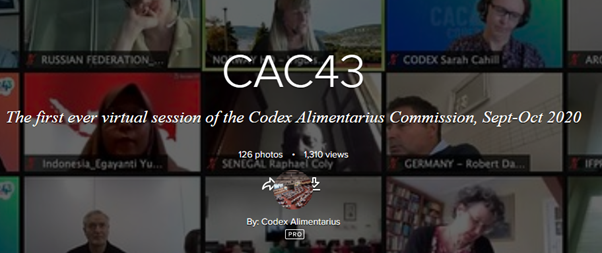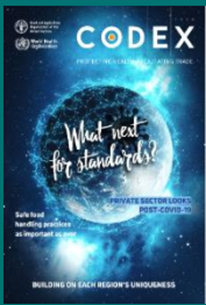World Milk Day 2024 Report – Celebrating Dairy’s Vital Role in Nutrition and Sustainability
This year, on June 1, we celebrated the vital role that dairy plays in delivering…
 Safe food and equitable international trade in food commodities depend on the establishment of Codex standards which are based on science and risk-based standards. The Covid-19 pandemic has also added clarity to the link between trade and global food security and highlighted the need for more resilience in the global food system.
Safe food and equitable international trade in food commodities depend on the establishment of Codex standards which are based on science and risk-based standards. The Covid-19 pandemic has also added clarity to the link between trade and global food security and highlighted the need for more resilience in the global food system.
Climate change, growing population, and growing pest pressures with the spread of invasive species globally underscore the importance of resilient food systems. Aligned government policies, including those for Minimum Residue Levels (MRLs), will be crucial to supporting open and predictable trade, and ensuring food security through resilient and sustainable food supply chains. For these reasons, it is vital to address the resource constraints that Codex has to address the increasing challenges and delays linked to the lack of in person meetings in 2020 and into the future.
The good news is Codex work has continued virtually thanks to the Codex Secretariat and strong calls of support by Codex Membership and Observers. You can view the extent of Codex work undertaken over the course of the past year, despite the pandemic, in the Codex Annual Report. Specifically, some of the technical committees and all six FAO/WHO Coordinating Committees met as planned, and this past month, the Virtual sessions of the Executive Committee and the 43rd Session of the Codex Alimentarius Commission were concluded successfully. It is worth noting that Membership at that session supported the use of modern tools and approaches by Codex subsidiary bodies to ensure Codex work progresses in a timely and effective manner. So, the Coalition for an Enhanced Codex will be pleased to support and ensure the vital work of the Codex Committee on Pesticide Residues (CCPR) will also be conducted efficiently and this could lead to approval of a large backlog of proposed MRLs. The Coalition for an Enhanced Codex represents a subgroup of private sector organizations that are members of the International Agri-Food Network who work together to help enhance the Codex Alimentarius standard-setting process.
You can view the extent of Codex work undertaken over the course of the past year, despite the pandemic, in the Codex Annual Report. Specifically, some of the technical committees and all six FAO/WHO Coordinating Committees met as planned, and this past month, the Virtual sessions of the Executive Committee and the 43rd Session of the Codex Alimentarius Commission were concluded successfully. It is worth noting that Membership at that session supported the use of modern tools and approaches by Codex subsidiary bodies to ensure Codex work progresses in a timely and effective manner. So, the Coalition for an Enhanced Codex will be pleased to support and ensure the vital work of the Codex Committee on Pesticide Residues (CCPR) will also be conducted efficiently and this could lead to approval of a large backlog of proposed MRLs. The Coalition for an Enhanced Codex represents a subgroup of private sector organizations that are members of the International Agri-Food Network who work together to help enhance the Codex Alimentarius standard-setting process.